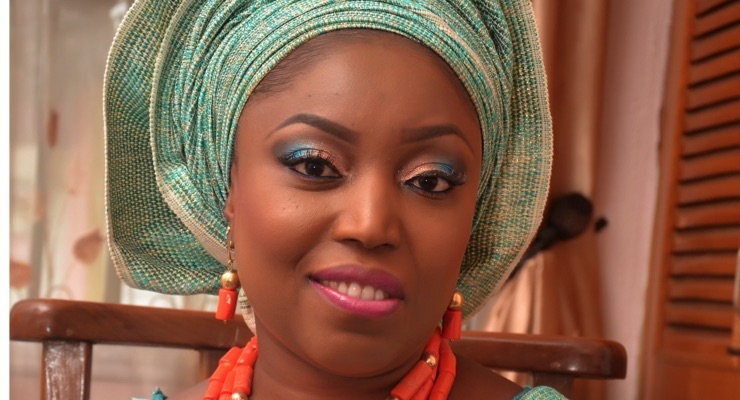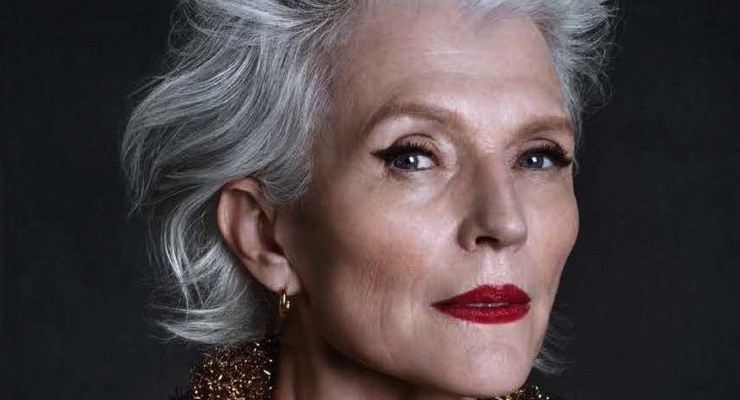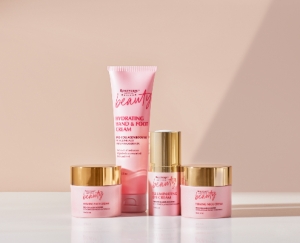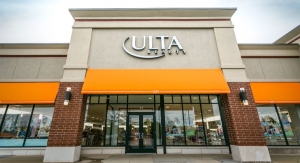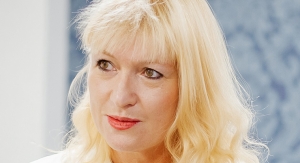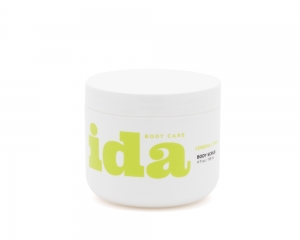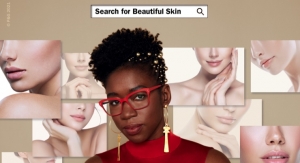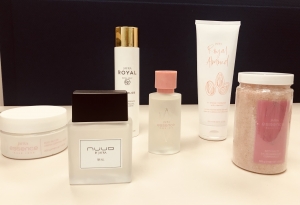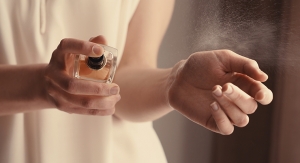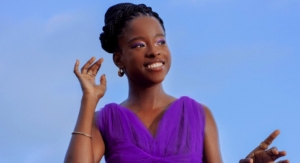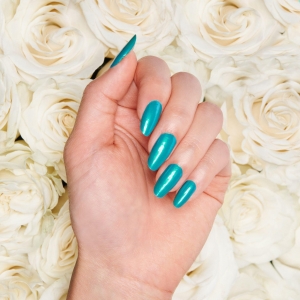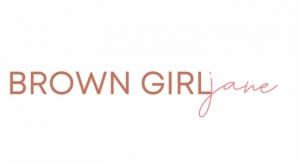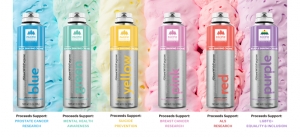Funlayo Alabi06.18.18
When I gaze at my 52-year-old face in the mirror, I see how much I have changed and yet how much I remain essentially the same. Reconciling the issue of aging and beauty is a double-edged sword as a woman who grew up in Nigeria, West Africa but spent the past 35 years living in America. I grew up in a culture where age is celebrated, not hidden. Women enter into their 40s, 50s and 60s with a sense of power and accomplishment. Birthday parties are lavish events where women signal to society that they are no longer merely girls, but women of substance. They enter into their season of maturity expecting to be treated with reverence and respect because of their age. The parties are celebratory, not quiet funeral-like events. There are no over-the-hill jokes; instead you are likely to hear that life begins at 40, 50 or whatever milestone is being celebrated.
A recurring theme at these milestone birthdays is gratitude and the celebration of living life long enough to enjoy another birthday. Gratitude that you have lived long enough to raise your children from infancy, you’ve gotten them through college and that you get to enjoy them as adults. Africans appreciate life and longevity is celebrated for all its benefits. Less attention is paid to wrinkles, sags and a diminishing waistline. Appearance is less of an issue; influence power and community are higher value assets as a woman enters into her mature years
Age and Beauty in America
In America, we have an obsession with youth and perfection that makes it nearly impossible for women to celebrate years of life and accomplishment. The standards of perfection are set so high that even young women in full bloom cannot meet the unrealistic expectations. Women are urged to fight age, and many feel pressure to lie about their age. Women in public-facing professions are especially vulnerable to anti-aging prejudice. Instead of women feeling more powerful with age, Western society renders them powerless and invisible. Women who base their identity on their youthful looks tend to be the most vilified and traumatized as youth fades.
According to Naomi Wolf, author of the Beauty Myth, current beauty standards are based around the pillars of youth – baby smooth skin, long lashes, narrow hips, slenderness – features only natural in prepubescent girls. Women are essentially encouraged to aspire to look like children, an appearance closely connected with helplessness, obedience, and malleability.
Age and Beauty in Europe
Watching European cinema or TV provides great insights on how women are viewed in France, Italy and other parts of Europe. One aspect that immediately stands out is that there is less of an obsession with perfection and youth in female characters. The women all look beautifully flawed like actual women and by the time their characters are fully developed on screen, their beauty cannot be denied. It is not unusual to see a female character over the age of 50 being portrayed as desirable and beautiful. Women seem to be more comfortable in their skin as they get older.
In an article written by Elizabeth Siegel for Allure Magazine, a survey of European women on their outlook of what made someone beautiful, women in Spain, Italy, France, and the U.K. ranked personality, confidence, skin, and hair as the five top traits and only one in four women named age as a contributing factor. In that survey, 75% of the women did not mind looking their age, they simply didn’t want to look older than they actually were.
If there is anything behind a face, that face improves with age.
Lines show distinction and character: they show that one has lived,
that one may know something.
~ Karen de Crow
Youth may fade, but true beauty doesn’t. The beauty of youth is a different beauty from that which comes from age and experience. As we age, we grow into a deeper kind of beauty, one which works its way from the inside out. It’s a more authentic and less superficial beauty. It shows through the eyes and the confident way one moves through life. It’s a different beauty because it radiates from within and draws others in. It is a beauty that is more outward focused on building relationships and looking beyond oneself to change the world and make it better.
About the Expert:
Funlayo Alabi is the co-founder of Shea Radiance, a natural beauty brand dedicated to transforming hair, skin, thinking … and lives into something more beautiful than what it was before.Funlayo is a global business leader who speaks domestically and internationally on matters of international business, market and economic access for African women, Africa’s agricultural sector and Shea butter. Funlayo and Shea Radiance were selected to be honored in the 2017 Goldman Sachs 10,000 Small Businesses program offering education, business support services and access to working

capital. Shea Radiance was founded in 2008 by Alabi on the premise that women need to care for themselves and each other. Shea Radiance crafts artisanal skincare and haircare products that are all-natural with the purest, small-batch, women-sourced shea butter from West Africa as a primary ingredient. Shea Radiance promotes the power of community and empowerment for women around the globe. For more about the Shea Radiance story, please visit http://www.shearadiance.com.
A recurring theme at these milestone birthdays is gratitude and the celebration of living life long enough to enjoy another birthday. Gratitude that you have lived long enough to raise your children from infancy, you’ve gotten them through college and that you get to enjoy them as adults. Africans appreciate life and longevity is celebrated for all its benefits. Less attention is paid to wrinkles, sags and a diminishing waistline. Appearance is less of an issue; influence power and community are higher value assets as a woman enters into her mature years
Age and Beauty in America
In America, we have an obsession with youth and perfection that makes it nearly impossible for women to celebrate years of life and accomplishment. The standards of perfection are set so high that even young women in full bloom cannot meet the unrealistic expectations. Women are urged to fight age, and many feel pressure to lie about their age. Women in public-facing professions are especially vulnerable to anti-aging prejudice. Instead of women feeling more powerful with age, Western society renders them powerless and invisible. Women who base their identity on their youthful looks tend to be the most vilified and traumatized as youth fades.
According to Naomi Wolf, author of the Beauty Myth, current beauty standards are based around the pillars of youth – baby smooth skin, long lashes, narrow hips, slenderness – features only natural in prepubescent girls. Women are essentially encouraged to aspire to look like children, an appearance closely connected with helplessness, obedience, and malleability.
Age and Beauty in Europe
Watching European cinema or TV provides great insights on how women are viewed in France, Italy and other parts of Europe. One aspect that immediately stands out is that there is less of an obsession with perfection and youth in female characters. The women all look beautifully flawed like actual women and by the time their characters are fully developed on screen, their beauty cannot be denied. It is not unusual to see a female character over the age of 50 being portrayed as desirable and beautiful. Women seem to be more comfortable in their skin as they get older.
In an article written by Elizabeth Siegel for Allure Magazine, a survey of European women on their outlook of what made someone beautiful, women in Spain, Italy, France, and the U.K. ranked personality, confidence, skin, and hair as the five top traits and only one in four women named age as a contributing factor. In that survey, 75% of the women did not mind looking their age, they simply didn’t want to look older than they actually were.
If there is anything behind a face, that face improves with age.
Lines show distinction and character: they show that one has lived,
that one may know something.
~ Karen de Crow
Youth may fade, but true beauty doesn’t. The beauty of youth is a different beauty from that which comes from age and experience. As we age, we grow into a deeper kind of beauty, one which works its way from the inside out. It’s a more authentic and less superficial beauty. It shows through the eyes and the confident way one moves through life. It’s a different beauty because it radiates from within and draws others in. It is a beauty that is more outward focused on building relationships and looking beyond oneself to change the world and make it better.
About the Expert:
Funlayo Alabi is the co-founder of Shea Radiance, a natural beauty brand dedicated to transforming hair, skin, thinking … and lives into something more beautiful than what it was before.Funlayo is a global business leader who speaks domestically and internationally on matters of international business, market and economic access for African women, Africa’s agricultural sector and Shea butter. Funlayo and Shea Radiance were selected to be honored in the 2017 Goldman Sachs 10,000 Small Businesses program offering education, business support services and access to working


